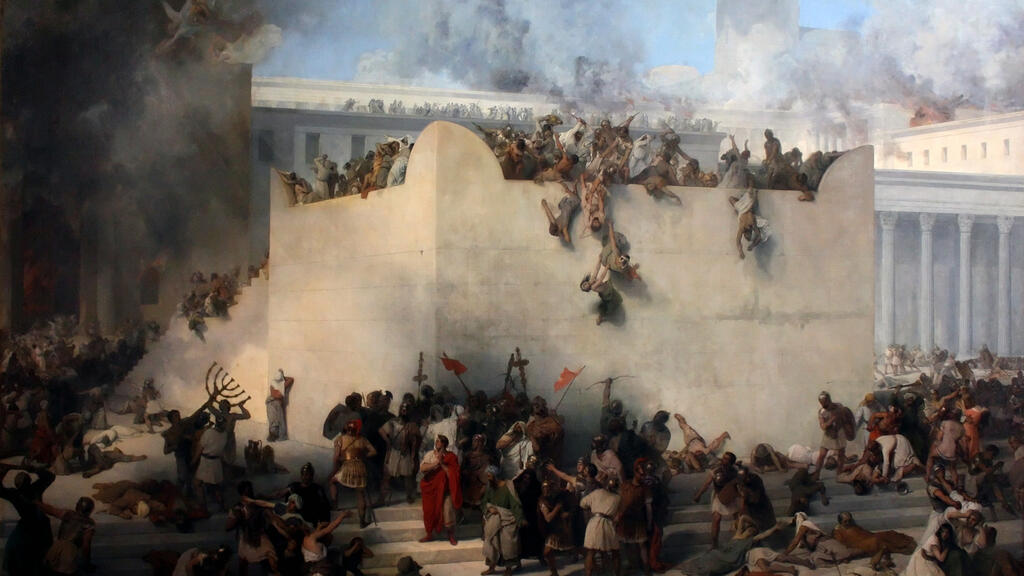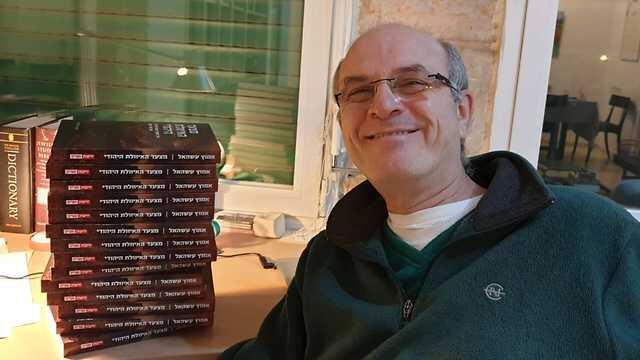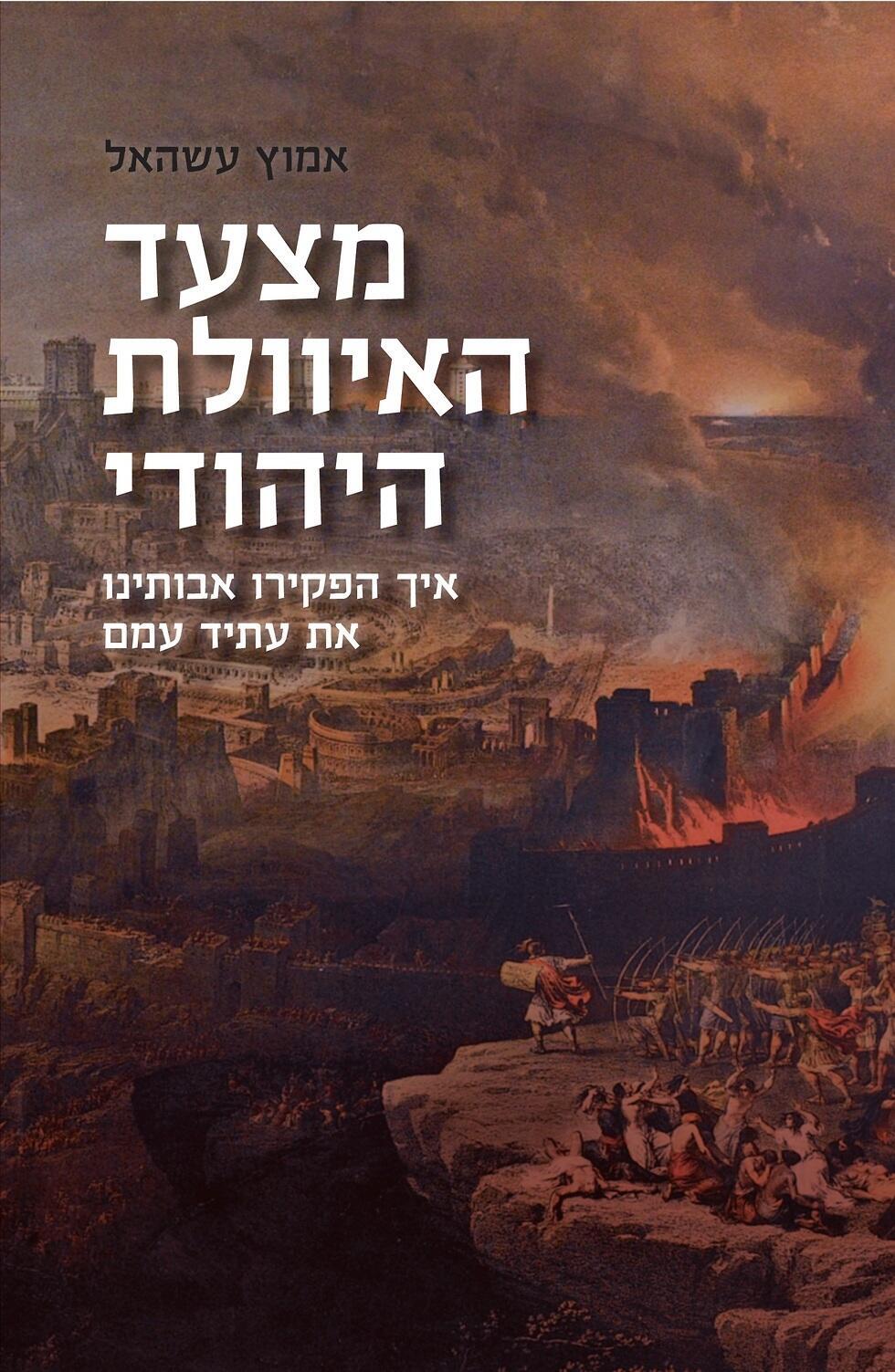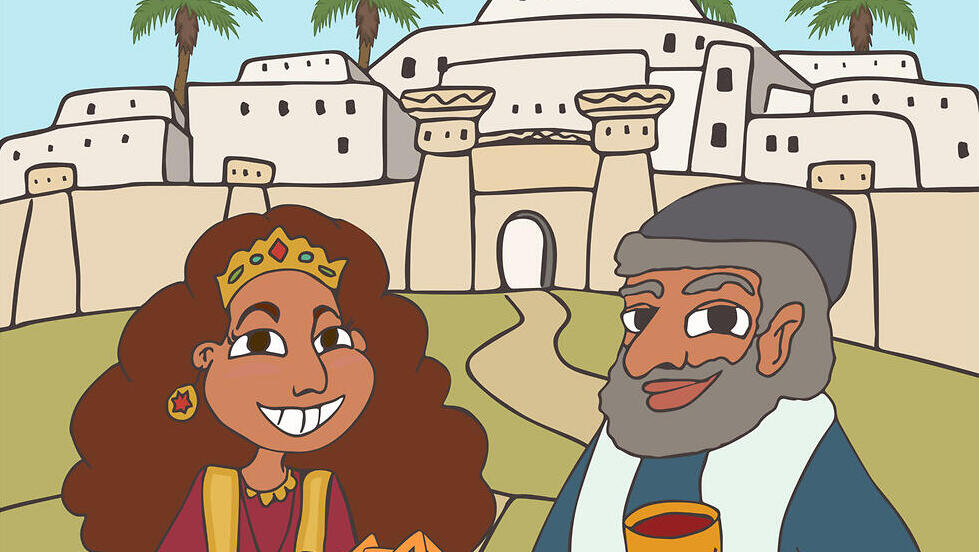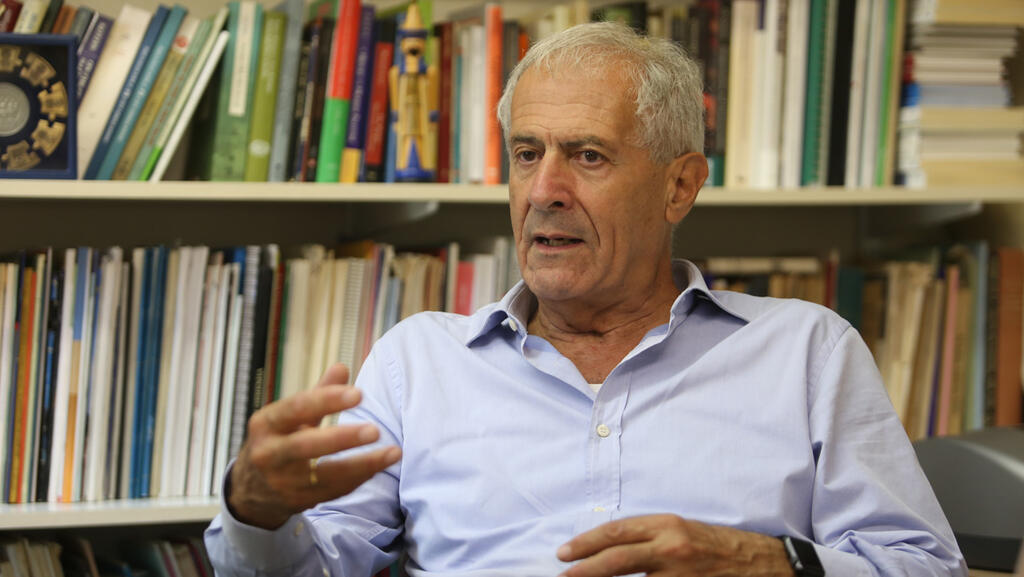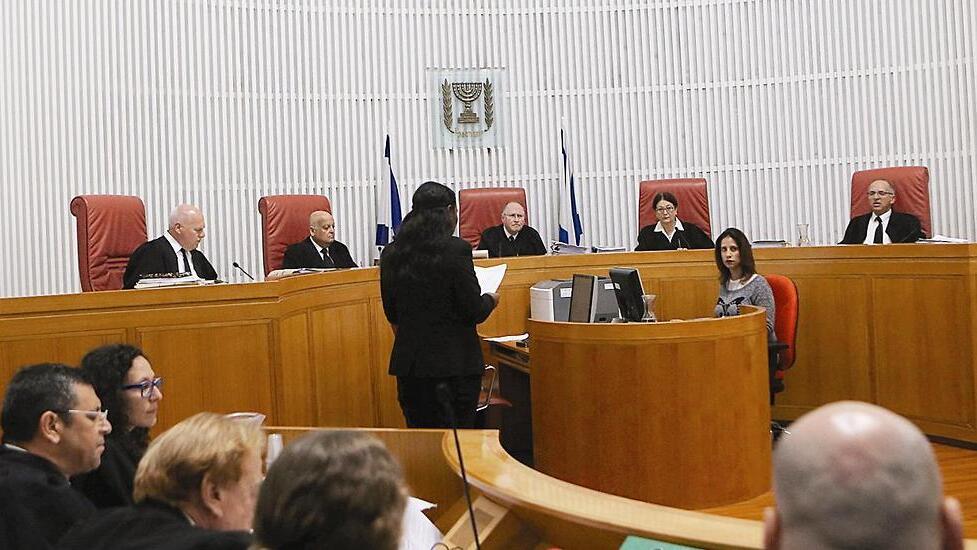Getting your Trinity Audio player ready...
Could the Jewish kings, leaders, and rabbis be responsible in no small part for the tragedies that have beset the Jewish people?
Author and journalist, Amotz Asa-El believes the answer is yes. In his 2019 book, disturbingly entitled: “The Jewish March of Folly,” Asa-El asks whether we are presently at the end of this march of folly.
The Jerusalem Post’s most veteran columnist, Amotz Asa-El, starts his book by citing two frightening cases of sexual abuse: Kitty Genovese, who was raped and murdered outside her home in in the Queens neighborhood of New York City in 1964, and the Levite’s Concubine (Judges 19-21) – a tragic Biblical tale of a young woman who was raped and later died in Gibeah, a town in the tribal region of Benjamin.
Asa-El tell us: “Growing up in New York, we learnt about the American Civil War – without leaving out the bad parts. When we made Aliya to Jerusalem, however, we didn’t learn about the Jewish civil wars of antiquity. We didn’t learn about Judah the Maccabee’s civil war, or about the great civil war in Jerusalem.”
He further explains that these wars were characterized by anarchy, alienation and arrogance that led to geographical collapse and the spawning the antisemitism, degradation and slaughter that have been part of Jewish life for millennia.
Asa-El’s rich and scholarly book, imagining a journalist’s tour of Jewish history, can be deceptive: The writer is a fan of various motifs in Jewish political thought from Moses and Samuel - who pled with the people to resist have a king rule over them – through to the courage of prophets such as Elijah and Nathan who stood up to kings as great at David and Ahab, fearlessly reproaching them.
He calls them “the first journalists in the history of mankind. “In his book Asa-El, however, also cites no less than 12 Jewish civil wars.
He regales such wars between the Jews of antiquity in which millions met their deaths. His book spans Jewish civil wars from Yiftah the Gilead (Jephthah, Judges 11-12) who, ostracized by his own half-brothers, ultimately went to war against the Ephramites, and the war between Benjamin and Israel (Judges 20) - through to the terrible civil war in Jerusalem (67-70 CE) in which Jewish in-fighting weakened efficiency in fighting the Romans.
The civil war in Jerusalem was played out by military leaders, Shimon bar Giora and Yohanan of Gush Halav (John of Giscala) who, at the end of the day, were gang leaders.
“These wars constituted anarchy incarnate,” says Asa-El “and they led us to our greatest tragedies.” The literary message emerging from the Bible is strongly against one-man government, which results in weak government, anarchy and folly.
When the tribes of Reuven, Gad and half of the tribe of Menashe entreated Moses for permission to settle east of the river Jordan River, Moses famously asks them: “Should your fellow brothers go to war while you sit here?’ (Numbers 32:6), they respond by promising (and making good on the promise) to become the Israelite “General Staff Reconnaissance Unit.”
Why did these tribes ask to settle east of the River Jordan? Asa-El believes that they feared that the more powerful tribes of Judah and Ephraim would rule over them.
“But this appeal, this separation made the tribe, any tribe, a political player. It created tribalism and made it a structural component within the Israelite people. The same goes of the territorial tribal allotment of the Land of Israel. This structure tore apart the Jewish People and led to horrific civil wars.”
Asa-El identifies this tribalism in the modern State of Israel. “Over the past 50 years, rabbis have repeatedly openly declared that on the cardinal matter of relinquishing territory, we should defer to the rabbis rather than either the government, or the nation’s majority. Isn’t this anarchy? The same goes for the monthly ‘civil war’ between Jewish tribes over the Western Wall Plaza. What is this if not the continuation of the march of folly?”
Shortly before the construction of the Second Temple, lived a man named “Mordechai.” He is the first person in literature to be called a “Yehudi” – a Jew. Asa-El believes that the story of Mordechai the Jew and Queen Esther, that we recounted on Purim last week, embodies the very nature of the Diaspora.
This 2000-year Jewish Diaspora is characterized by expanding national existence beyond the homeland, traversing a world with no boundaries, exerting power over foreign nations and governments - while holding neither territory, an army nor a government.
While no returning to their homeland, the Jewish People became a “Nation of the World,” residing in every corner of the globe. Asa-El mentions that one of the Amoraim is cited in the Babylonian Talmud as saying that it is forbidden to move from Babylon to the Land of Israel.
These features are the greatest tragedy of the Jewish people. This geographic shattering spawned Christianity and the oppression of the Jewish people. It’s also responsible, to a certain extent, for the Holocaust in Europe.
How does he reach these conclusions? Paul of Tarsus (Saint Paul), the Jew ultimately responsible for the spread of Christianity, grew up in Tarsus in Asia Mino in a Jewish community surrounded by gentiles. The dispersal of the Jewish people, living across the world without a homeland, created countless such communities.
Paul was aware of the ongoing tensions of living in a community which, on one hand is a minority, and on the other hand, has a sense of being the “chosen people.” He strove to relieve this tension and tried to create an equilibrium between the two competing faiths.
These efforts led to not only rejection by the Jews and exacerbation of tensions with the Christians, but also to the Christian missionary desire to spread Christianity to every far-flung Jewish community across the globe.
The practical outcome has been the loss of millions of lives over thousands of years. “We’re not the chosen people. There are no favorite children,” Asa-El tells us. “This mindset that has accompanied the wondering Jewish people, living beside non-Jews, has led to skewed relations and to disasters."
The Holocaust, claiming the lives of several more million Jews, is no different. Asa-El is quick to emphasize that he in no way belittles the responsibility of the true perpetrators of the Holocaust - the Nazis, but points out that it was enabled by the geographic scattering of the Jewish people.
Herzl, and later Jabotinsky, implored the Jews to leave Europe, but there were rabbis who opposed emigrating to America on grounds of it being a treif medina (an unclean country). Incidentally, they were right, but they didn’t have the tools needed by great leaders dispensing such advice to their followers.
Asa-El believes that the Reform movement fares not better in this matter. “The Reform movement in Germany glorified Diaspora life on messianic grounds: They disagreed with the Orthodox camp who believed the Messiah had not yet arrived, by claiming that he was already here.
"The Messiah was embodied in equal rights in Europe, making any European country the ‘Promised Land.’ It’s hard to believe that they all marched together in the Jewish march of folly – rabbis and Orthodox leaders marched shoulder to shoulder with the Reform movement and the ‘enlightened’ educated European Jews.”
Asa-El ends his book with a fascinating conversation with the greatest living Jewish demographer, Sergio Della Pergola, who predicts that by 2030, possibly even 2025, the majority of the Jewish people will be living in the Land of Israel. “In a few years’ time, Israel will become the center of Jewish existence.”
What does that mean? Will there no longer be a scattered Jewish people?
“The writer A.B. Yehoshua strives to eradicate the Jewish Diaspora, and it’s likely to happen in a few years. I don’t agree with him.
"The dispersal of the Jewish people has enormous importance, especially in the English-speaking world, where it is possible to develop healthy relations with non-Jewish communities, on condition that alongside this Diaspora existence, we Israelis are responsible for the fate of the Jewish people."
"We are no longer ‘one people, dispersed amongst the nations’ with no land, army, flag or anthem – that would likely once against bring upon us tragedy and anarchy.”
Do you think we’ve reached the end of the march of folly with the establishment of the State of Israel?
“I suspect not. I see it on the political right – with its ongoing attacks on the Supreme Court, from the Elor Azaria case through to the absurd claim of a ‘leftist judges’ conspiracy. I also see on the political left incitement and the recruitment of foreign governments against our own government by employing stories defaming Israel. I keep wondering whether we still harbor the instinct for anarchy.”


